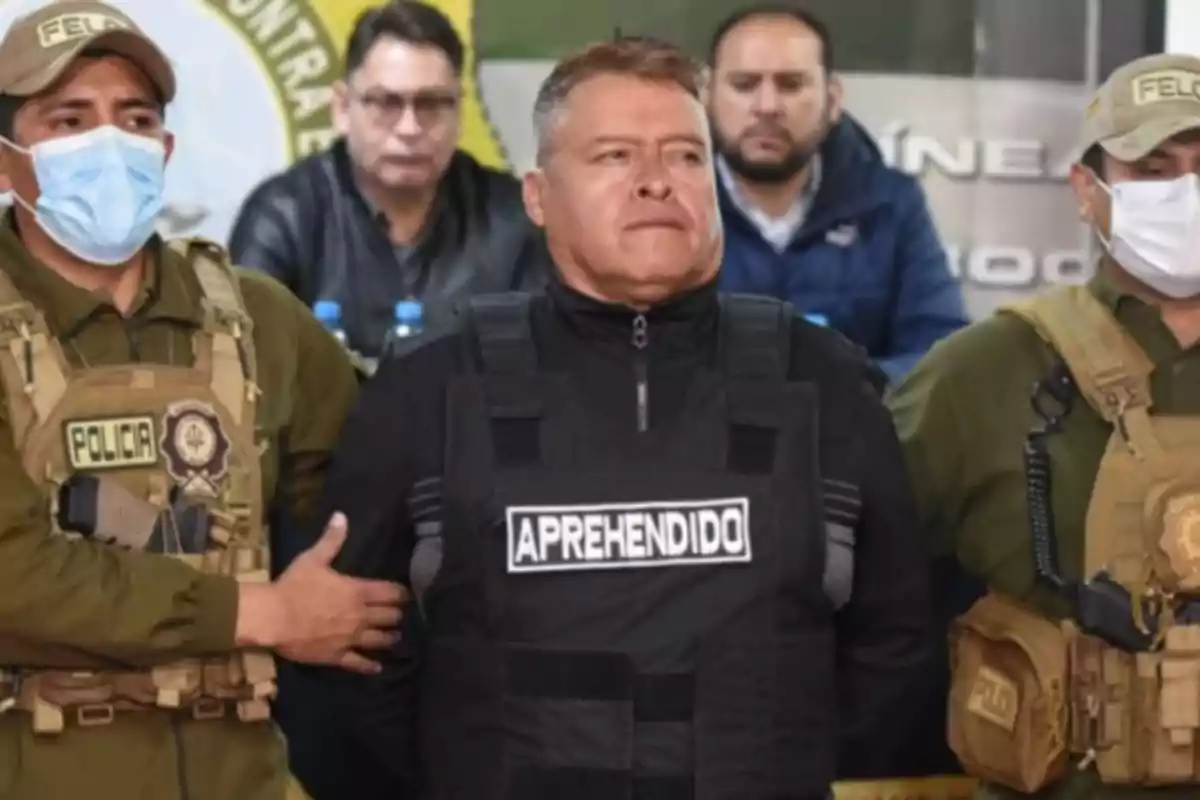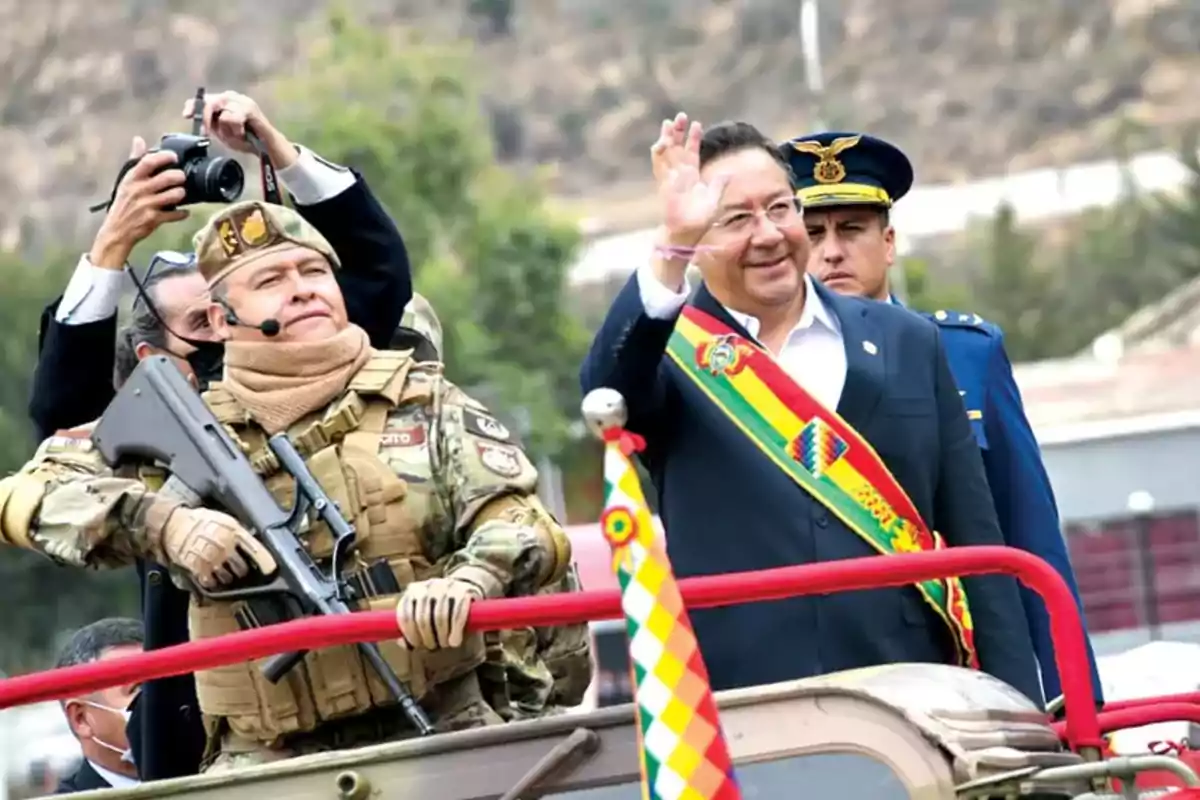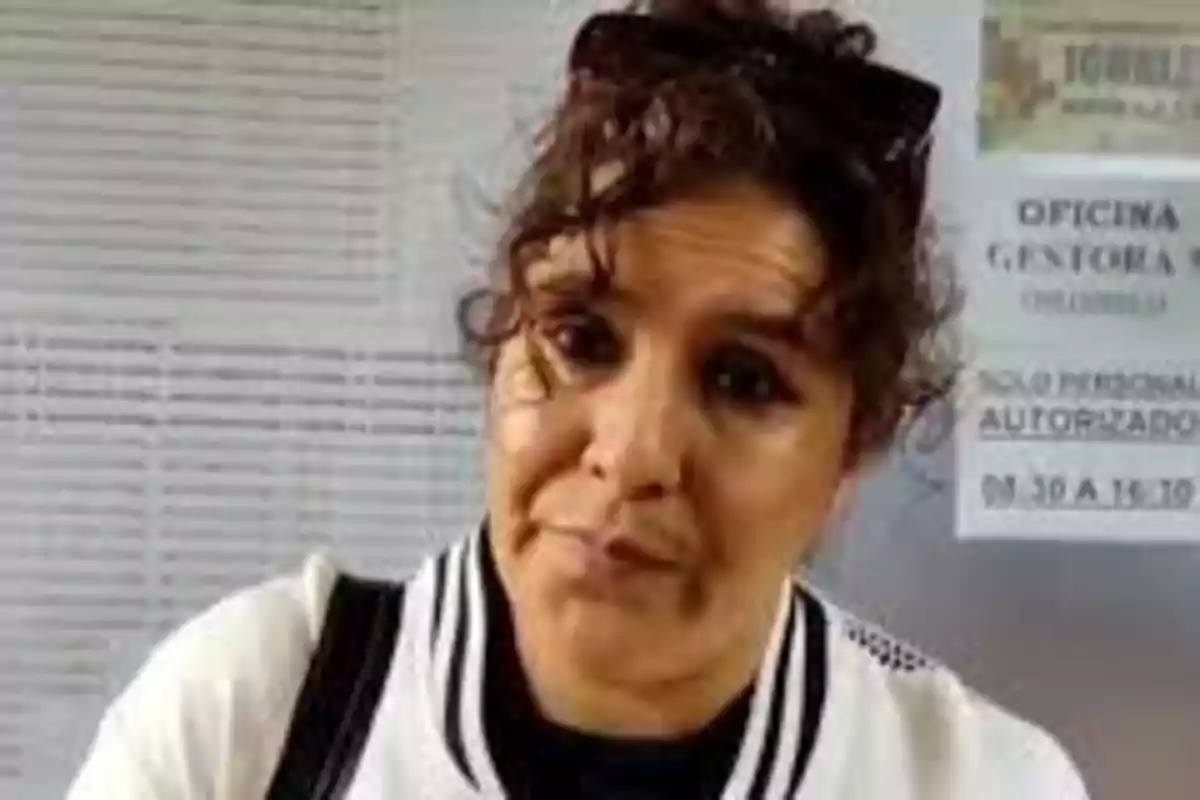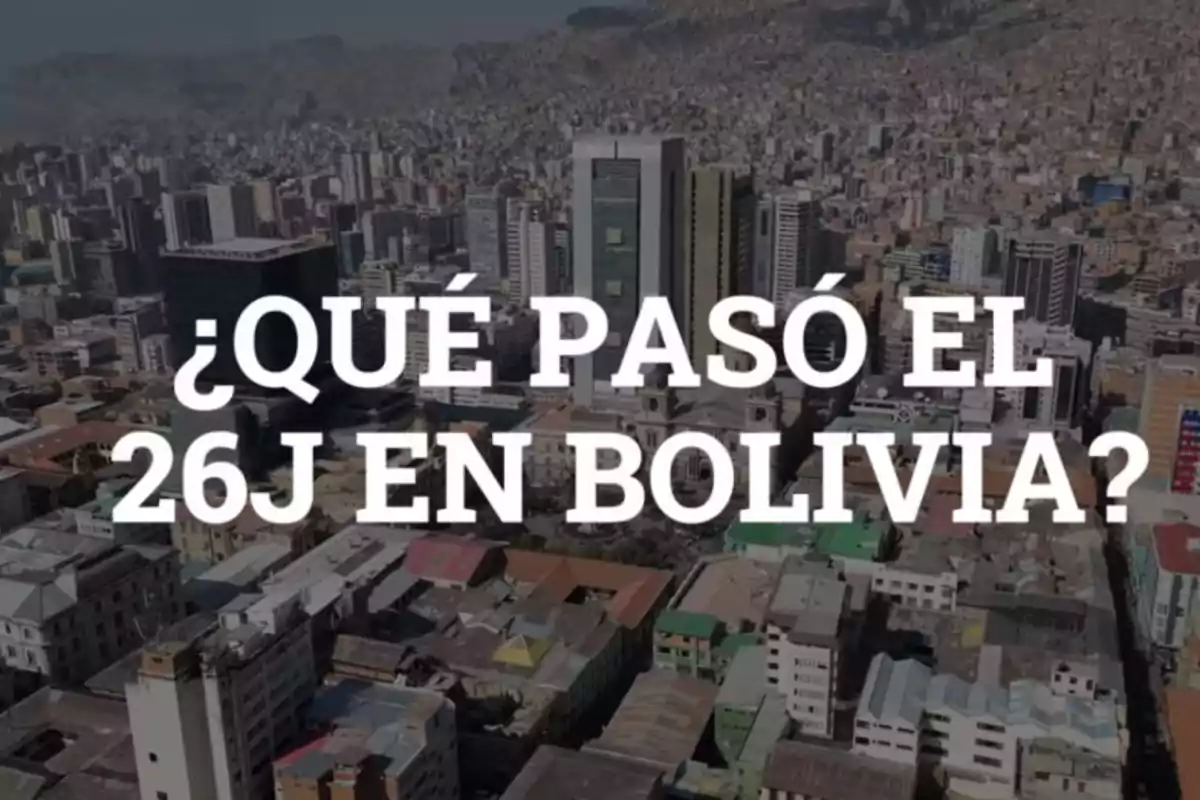
General Zuñiga reaffirmed that there was no coup d'état, but rather a setup by the government.
Zúñiga indicated that he only obeyed Luis Arce and revealed that the Government supervised every detail of the fake Coup d'État
From the El Abra prison in Cochabamba, retired General Juan José Zúñiga broke his silence. The former Army commander stated that there was no attempted coup d'état on June 26, 2024, but rather a planned operation directed by the Government. According to his version, both he and the other prosecuted military personnel simply followed direct orders from the president to mobilize troops amid a social tension scenario that threatened to overflow.
Zúñiga recounted that on Sunday, June 23, while participating in a sports activity at a school in La Paz, Arce gave him specific instructions. The president, concerned about roadblocks and an imminent paralysis in the highlands, ordered him to mobilize armored vehicles. According to him, the order was: "Bring the tanks, bring the armored vehicles, they must arrive before the blockades start at midnight".
He claims he didn't have time to change clothes and immediately summoned the Army General Staff to execute the order. The operation was set in motion swiftly. Zúñiga called the heads of Intelligence, Logistics, Operations, and Communication, conveying the presidential instruction to them.
Did they act on Luis Arce's orders?

He claims that no military personnel objected to the order, and everyone understood that it was a preventive action for a week that Arce himself described as "critical" for his administration. The general detailed that the military equipment was mobilized separately to avoid causing alarm, and the president was the only one authorized to order those movements.
In the days leading up to the mobilization, the general claims there were multiple meetings with high-level authorities from the presidential circle. One was held on the 22nd floor of the Casa Grande del Pueblo where Zúñiga met with María Nela Prada, Edmundo Novillo, and Hugo Moldiz. In that meeting, the replacement of the Military High Command and the need for Armed Forces support in the face of upcoming conflicts were discussed.
Zúñiga insists that there was never any intention to seize power. He ironically stated that if he had wanted to execute a real coup, he would have done it at dawn with military strategy, not with just fifteen visible tanks in broad daylight. He questioned the official narrative, maintaining that it was all a carefully directed setup to elevate Arce's image and suppress opposing voices under the pretext of a failed coup attempt.
Is the documentary just a setup?

In the same vein, the general's defense referred to the documentary "What happened on 26J?", presented by Government Minister Eduardo del Castillo. In this audiovisual material, the Executive accuses Zúñiga of having formed a supposed alternate civil cabinet with known public figures. The military man denied knowing most of the people mentioned, describing the documentary's content as a "cinematic setup" with no basis in real events.
Attorney Silvia Tapia, Zúñiga's legal representative, described the alternate cabinet disseminated by the Government as "imaginary." She assured that her client was surprised to see the names and that he has no relationship with those linked as part of the alleged ministerial team of the coup. "There is no personal, professional, or ideological relationship between the general and those people; it's an unfounded invention," said the lawyer.
Sergio Castro, former captain of the military group "Los Pachajchos," also provided key statements in defense of Zúñiga. He stated that the general never conspired against the Government but rather complied with the president's orders. Castro mentioned that Luis Fernando Rodríguez Ureña (close to Arce) supervised the execution of the orders and questioned why he hasn't been summoned by the Prosecutor's Office yet.
Zúñiga denounced that there is a political "executioner" seeking to persecute and imprison military personnel and citizens without real evidence to allow the Government to maintain power. He claims the case has been used to eliminate political adversaries, humiliate the Armed Forces, and instill fear in the population under the guise of protecting democracy.
Justice Minister César Siles pointed out that Zúñiga's statements have no legal value, recalling that he has already testified three times before the Prosecutor's Office. Despite this, the general insists that his testimony has been ignored and that his sentence was determined from day one, without the right to a fair defense. "They didn't listen to my truth, they humiliated me, they trampled on me," he expressed.
Did Masismo need a coup d'état?

For Zúñiga, what happened on June 26 was the result of a political calculation and not a destabilizing military action. He says the Government needed to boost its popularity amid an internal crisis, confrontations with social organizations, and protests over the economic situation. "They wanted a clash with the Police, with social movements, to victimize themselves and appear as martyrs of democracy," he denounced.
The general recounted that on June 24, he received calls from two key figures in the presidential circle, who asked if his "irons" had arrived. He was in constant communication with Hugo Moldiz and Fernando Rodríguez, and they even participated in strategic meetings alongside other high-ranking military officials. For Zúñiga, this demonstrates that the Government was aware of every step and can't claim surprise or ignorance.
In recent weeks, several people mentioned as part of the supposed civil cabinet publicly denied any connection with Zúñiga. Among them, economists Gonzalo Chávez and Jaime Dunn, lawyer Jorge Valda, and other professionals also expressed their rejection of the accusations. The general's defense claims that these allegations only confirm the political nature of the case and the Government's need to construct fictitious enemies.
Zúñiga considers himself a political prisoner and demands justice not only for himself but for all imprisoned military personnel. He claims his only mistake was following a direct order from the president in an emergency context.
He keeps that the truth will come to light and history will judge those who used power to destroy reputations and divide the country. "There was no coup, there was a setup, and those of us who obeyed are now behind bars," he concluded.
More posts: